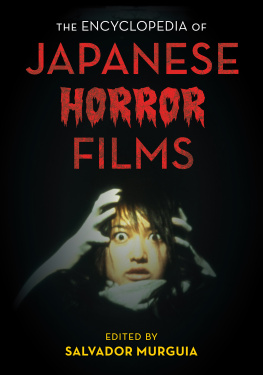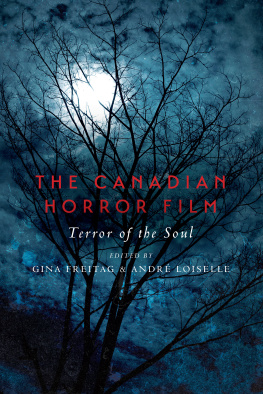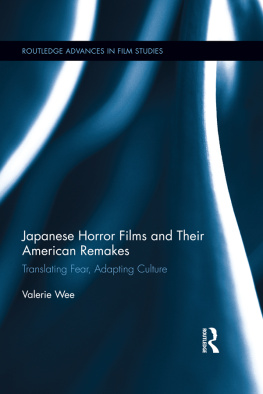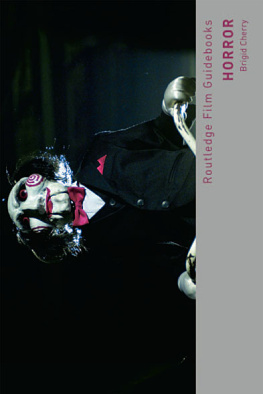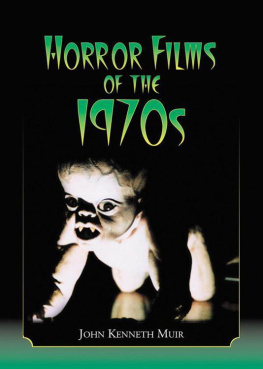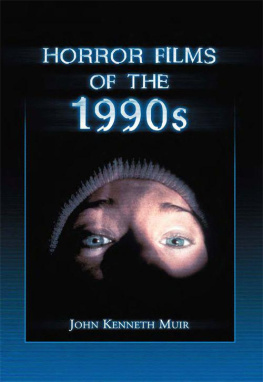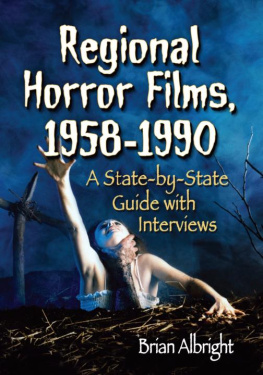
Post-9/11 Heartland Horror
This book explores the resurgence of rural horror following the events of 9/11, as a number of filmmakers, inspired by the films of the 1970s, moved away from the characteristic industrial and urban settings of apocalyptic horror, to return to American heartland horror. Examining the revival of rural horror in an era of city fear and urban terrorism, the author analyses the relationship of the genre with fears surrounding the Global War on Terror, exploring the films engagement with the political repercussions of 9/11 and the ways in which traces of traumatic events leave their mark on cultures.
Arranged around the themes of dissent, patriotism, myth, anger and memorial, and with attention to both text and socio-cultural context in its interpretation of the films themes, Post-9/11 Heartland Horror offers a series of case studies covering a ten-year period to shed light on the manner in which the Post-9/11 Heartland Horror films scrutinize and unravel the events, aspirations, anxieties, discourses, dogmas and socio-political conflicts of the post-9/11 era. As such, it will appeal to scholars and students of film studies, cultural and media studies and those with an interest in the relationship between popular culture and politics.
Victoria McCollum is Lecturer in Cinematic Arts in the School of Creative Arts and Technologies at Ulster University (Northern Ireland).
The Cultural Politics of Media and Popular Culture
Series Editor: C. Richard King
Washington State University, USA
Dedicated to a renewed engagement with culture, this series fosters critical, contextual analyses and cross-disciplinary examinations of popular culture as a site of cultural politics. It welcomes theoretically grounded and critically engaged accounts of the politics of contemporary popular culture and the popular dimensions of cultural politics. Without being aligned to a specific theoretical or methodological approach, The Cultural Politics of Media and Popular Culture publishes monographs and edited collections that promote dialogues on central subjects, such as representation, identity, power, consumption, citizenship, desire and difference.
Offering approachable and insightful analyses that complicate race, class, gender, sexuality, (dis)ability and nation across various sites of production and consumption, including film, television, music, advertising, sport, fashion, food, youth, subcultures and new media, The Cultural Politics of Media and Popular Culture welcomes work that explores the importance of text, context and subtext as these relate to the ways in which popular culture works alongside hegemony.
For a complete list of titles in this series, please visit www.routledge.com/series/ASHSER-1395.
Masculinity in Contemporary Quality Television
Michael Mario Albrecht
Consumerism on TV
Popular Media from the 1950s to the Present
Edited by Alison Hulme
Wasted
Performing Addiction in America
Heath A. Diehl
Superheroes and American Self Image
From War to Watergate
Michael Goodrum
Humor and Satire on Contemporary Television
Animation and the American Joke
Silas Kaine Ezell
Gender and Sexuality in Contemporary Popular Fantasy
Beyond Boy Wizards and Kick-Ass Chicks
Edited by Jude Roberts and Esther MacCallum-Stewart
Post-9/11 Heartland Horror
Victoria McCollum
Post-9/11 Heartland Horror
Rural horror films in an age of urban terrorism
Victoria McCollum
First published 2017
by Routledge
2 Park Square, Milton Park, Abingdon, Oxon OX14 4RN
and by Routledge
711 Third Avenue, New York, NY 10017
Routledge is an imprint of the Taylor & Francis Group, an informa business
2017 Victoria McCollum
The right of Victoria McCollum to be identified as author of this work has been asserted by her in accordance with sections 77 and 78 of the Copyright, Designs and Patents Act 1988.
All rights reserved. No part of this book may be reprinted or reproduced or utilised in any form or by any electronic, mechanical, or other means, now known or hereafter invented, including photocopying and recording, or in any information storage or retrieval system, without permission in writing from the publishers.
Trademark notice: Product or corporate names may be trademarks or registered trademarks, and are used only for identification and explanation without intent to infringe.
British Library Cataloguing in Publication Data
A catalogue record for this book is available from the British Library
Library of Congress Cataloging in Publication Data
Names: McCollum, Victoria, author.
Title: Post-9/11 heartland horror: rural horror films in an era of urban terrorism / by Victoria McCollum.
Description: Farnham, Surrey; Burlington, VT: Ashgate, 2016. | Series: The Cultural Politics of Media and Popular Culture | Includes bibliographical references and index. | Includes filmography.
Identifiers: LCCN 2015043402| ISBN 9781472465818 (hardback : alk. paper)| ISBN 9781315601601 (epub)
Subjects: LCSH: Horror filmsUnited StatesHistory and criticism. | Motion picturesUnited StatesHistory21st century. | Country life in motion pictures. | Terror in motion pictures. | September 11 Terrorist Attacks, 2001Influence.
Classification: LCC PN1995.9.H6 M38 2016 | DDC 791.43/61640973dc23
LC record available at http://lccn.loc.gov/2015043402
ISBN: 978-1-4724-6581-8 (hbk)
ISBN: 978-1-315-60160-1 (ebk)
Typeset in Bembo
by Book Now Ltd, London
For my folks. For my brother.
Especially for Gemma Faith.
To them, I had nothing to prove.
Contents
by Emily Satterwhite
Emily Satterwhite, Virginia Tech
In Post-9/11 Heartland Horror, Victoria McCollum brilliantly demonstrates the ways in which twenty-first-century horror films have explored and criticized post-9/11 American politics and the US War on Terror. She does this by first staking out heartland horror as a distinct group of rural-set films that differ in important ways from the more numerous, run-of-the-mill hillbilly horror movies (to use David Bells term) prevalent since the year 2000. While hillbilly horror films may bear traces of post-9/11 concerns, the author identifies as heartland horror a subset of films that take a deliberately and decisively critical stance on patriarchal self-righteousness, jingoistic imperialism, and the depravity, cruelty and barbarism of seemingly civilised white dominance. Whereas conventional hillbilly horror films exhibit what Carol Clover has termed urbanoia, an urban fear of the primitive rural Other, McCollums heartland horror films exhibit a fear of the normative and the dominant. Whereas hillbilly horror villains are the underclass, McCollum pinpoints a set of films that portray the villainy of middle- to upper-middle-class Americans who advocate a stifling family values fundamentalism. Whereas hillbilly horror locales are near-wilderness and inhabited by isolated poor who prey on cosmopolitan outsiders, McCollum excavates films that interrogate this simplistic binary by illuminating the ways in which a more suburban, upper-middle-class way of life exists side-by-side with desperate rural poverty in the countryside. For example, the author adroitly shows us how


